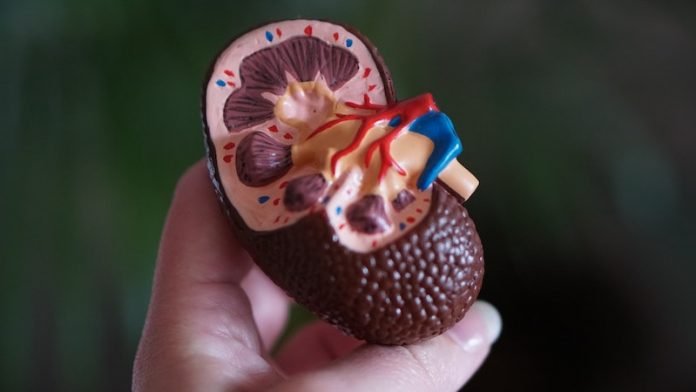
In a new study from the University of Alabama at Birmingham, researchers reported the successful transplant of genetically modified, clinical-grade pig kidneys into a brain-dead human individual, replacing the recipient’s native kidneys.
These positive results demonstrate how xenotransplantation could address the worldwide organ shortage crisis.
The team tested the first human preclinical model for transplanting genetically modified pig kidneys into humans.
The study recipient had two genetically modified pig kidneys transplanted in his abdomen after his native kidneys were removed.
For the first time, the pig kidneys transplanted were taken from pigs that had been genetically modified with 10 key gene edits that may make the kidneys suitable for transplant into humans.
This process demonstrates the long-term viability of the procedure and how such a transplant might work in the real world.
The transplanted kidneys filtered blood, produced urine and, importantly, were not immediately rejected. The kidneys remained viable until the study was ended, 77 hours after transplant.
Gene editing in pigs to reduce immune rejection has made organ transplants from pigs to humans possible, which could offer help to thousands of people who face organ failure, disease or injury.
The natural lifespan of a pig is 30 years, they are easily bred and can have organs of similar size to humans.
Genetically modified pig kidneys have been extensively tested in non-human primates.
In addition to testing in non-human primates, evaluating genetically modified pig kidneys in a human preclinical model research may provide important information about the potential safety and efficacy of kidneys in human transplant recipients, including in clinical trials.
This scientific and medical breakthrough would not have been possible without Jim Parsons, the recipient, or his family.
Parsons, 57, was a registered organ donor through Legacy of Hope, Alabama’s organ procurement organization, and he had longed to have his organs help others upon his death, but his organs were not suitable for donation.
His family permitted UAB to maintain Parsons on a ventilator to keep his body functioning during the study. His native kidneys were removed, and two genetically modified pig kidneys were transplanted.
If you care about kidney health, please read studies about eating habits linked to chronic kidney disease, and high blood pressure guideline that could benefit people with kidney disease.
For more information about health, please see recent studies about vegetables that could reduce diabetes-related kidney damage, and results showing these common painkillers may harm your heart and kidneys.
The study is published in the American Journal of Transplantation. One author of the study is Selwyn Vickers, M.D.
Copyright © 2022 Knowridge Science Report. All rights reserved.




